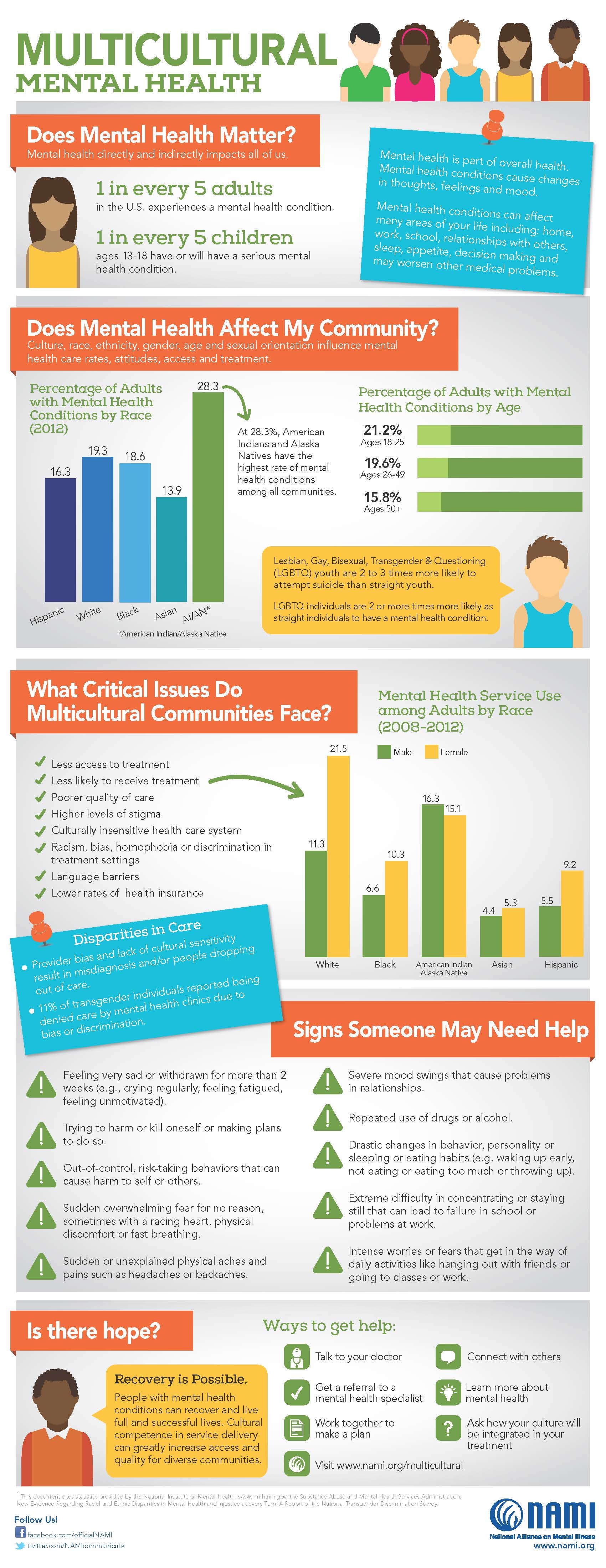July is National Minority Mental Health Awareness Month. Culture, race, gender, ethnicity, age and sexual orientation are all factors that can influence mental health. Today we highlight recent information about our diverse communities and what Californians can do to help.
A recent UCLA study on low-income African-American and Latino U.S. residents shows that these communities are disproportionately affected by mental health issues due to various environmental stresses. These challenges include experiences of discrimination due to racial, ethnic, gender or sexual orientation, history of sexual abuse, history of violence in the community and more. Moreover, many members of diverse communities may feel heightened stigma associated with a mental health challenge and are therefore unwilling to reach out and get the help they need.
To raise awareness, the National Alliance on Mental Illness (NAMI) created the Multicultural Mental Health infographic below on mental health challenges across diverse communities, the various critical issues they face and ways to get help. Visit NAMI for more information.
via Multicultural Mental Health Facts and Info – Each Mind Matters – California’s Mental Health Movement.


Leave a Reply